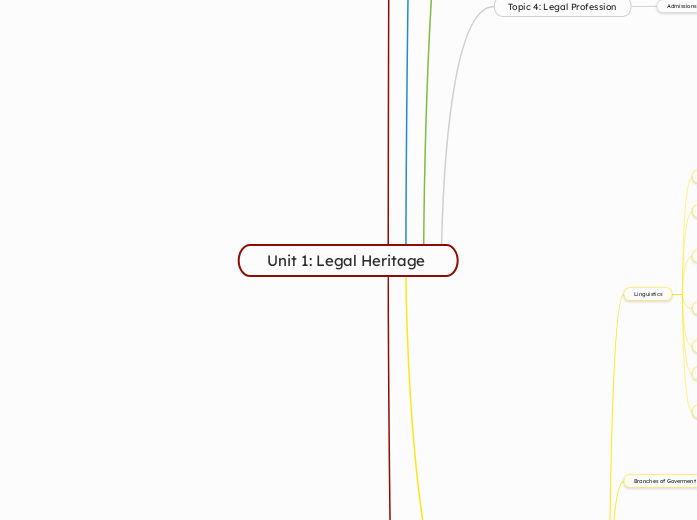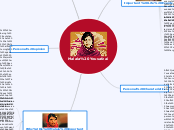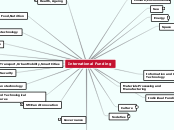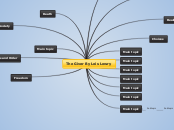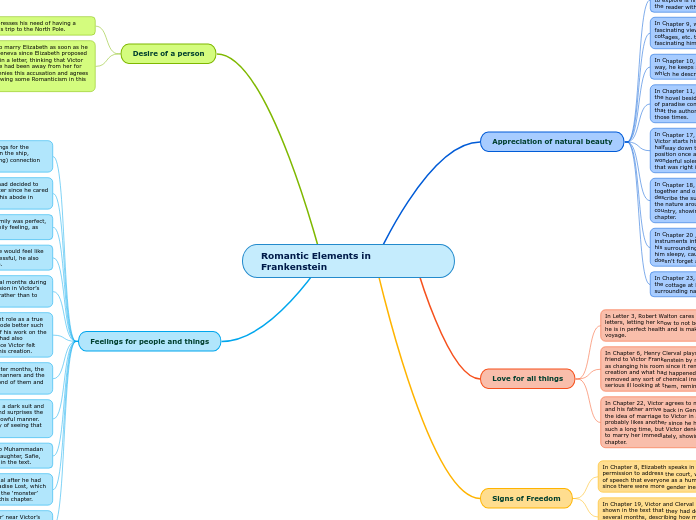Unit 1: Legal Heritage
Topic 6: The Charter
Section 33, Notwithstanding Cause. (1,3)
(3) A declaration made under subsection 1 shall cease to have effect five years after it comes into force or on such earlier date as may be specified in the declaration.
If the voters don't agree with the law
they can vote the government out.
Five Year limitation
(2) An act or provision of an Act in respect of which a declaration
made under this section is in effect shall have such operation as it would have but for the provision of this Charter referred to in the declaration.
Operation of Exceptance
(1) Parliament or the legislature of a province may expressly declare in an Act of Parliament or of the legislature as the case may be, that the Act or a provision shall operate not with standing a provision included in section 2 or 7-15 of this Charter
Parliament can make any laws that go against your
section 2,7-15 rights.
Section 24, Enforcement. (1,2)
(1) Anyone whose rights or freedoms, have been infringed or
denied may apply to a court of competent jurisdiction to obtain such remedy as the court considers appropriate and just in circumstances
Prostitutes argued that a statute law infringed
their Charter rights. This section allows them to
fight the law in court.
Section 15, Equality Rights. (1,2)
(2) Subsection (1) does not preclude any law, program or activity that has as its object the amelioration of conditions of disadvantaged individuals or groups including those that are disadvantaged because of race, national or ethnic origin, colour, religion, sex, age or mental or physical disability.
amelioration:
the act of making something better; improvement
The government can make unequal laws, as long as they help a disadvantaged group
Affirmative Action Programs
(1) Every individual is equal before and under the law and has the right to the equal protection and equal benefit of the law without discrimination and, in particular, without discrimination based on race, national or ethnic origin, colour, religion, sex, age or mental or physical disability.
Everyone is equal under the law and has the right to equal protection and benefits, without discrimination, especially based on race, origin, color, religion, sex, age, or disability.
Section 13, Self-crimination.
A witness who testifies in any proceedings has the right
not to have any incriminating evidence so given
used to incriminate that witness in any other proceedings,
except in a prosecution for perjury or for the giving of
contradictory evidence.
The courts/police cant use anything you said
while testifying against you in another trail.
Section 11,Proceedings in Criminal Matters. (h,i)
(i) If found guilty of the offence and if the punishment for the offence has been varied between the time of commission and
the time of sentencing, to the benefit of the lesser punishment.
If found guilty and the punishment has changed between the offence and sentencing, the lesser punishment applies.
(h) If finally acquitted of the offence, not to be tried for it again and if found guilty and punished for the offence, not to be tried or punished again.
*Not including appeals) If you have been convicted or tried for a crime then you can’t be tried again.
Section 11, Proceedings in Criminal Matters. (a,b,d)
(d) to be presumed innocent until proven guilty
according to law in a fair and public hearing.
(b) To be tried within a reasonable time
(a) To be informed without unreasonable delay of said offence
Any person charged with an offence has the right -
Section 10, Arrest or Detention. (a,b,c)
(c) To have the validity of the detention determined by way of habeas corpus and to be released if the detention is not lawful.
habeas corpus: “To have the body”
you have control over your body = no arbitrary arrest
(b) To retain and instruct counsel without delay and to be
informed of that right; and
(a) To be informed of the reasons therfore;
Everyone has the right on arrest or detention
Everyone has the right, upon arrest or detention, to be promptly told why, to get a lawyer without delay, and to challenge the detention's legality through habeas corpus, with release if it's unlawful.
Section 7, Life,Liberty, and the Security of Person
Everyone has the right to life, liberty and security of the person and the right not to be deprived thereof except in accordance with the principles of fundamental justice.
Everyone has the right to life, liberty, and security, and cannot be deprived of them except by fundamental justice.
Section 2, Fundamental Freedoms
(c) Freedom of peaceful assembly.
(d) Freedom of association.
(c) Protest
(d) Join any group
e.g Hell's Angels
(a) Freedom of conscience and religion.
(b) Freedom of thought, belief, opinion and
expression, including freedom of the press
and other media of communication.
Everyone has the following fundamental freedoms:
Section 1, Reasonable Limits
The Charter of Rights and Freedoms guarantees
the rights and freedoms set out in it subject only to
such reasonable limits prescribed by law as can be
demonstrably justified in a free and democratic society
The government is allowed to limit your rights by making laws.
Topic 5: Goverment
Roles in Government
King/Queen
The head of state in Canada and represents the monarchy. While their role is mostly ceremonial. The King or Queen has responsibilities like appointing the Governor General and attending official events. However, the day-to-day governance of Canada is carried out by elected officials and the Prime Minister.
Member of Parliament
An elected representative in the House of Commons of Canada. The members represent specific areas, known as ridings, and are responsible for making laws, discussing national issues, and representing the interests of their constituents. They participate in debates, vote on legislation, and hold the government accountable.
Senator
A Senator is a member of the Canadian Senate, which is the upper house of Parliament. Senators are selected to represent different areas of Canada and review laws proposed by the House of Commons. Their role includes suggesting changes to legislation, providing expertise, and ensuring that the interests of various provinces and groups are considered in the law-making process.
Prime Minister's Cabinet
The Prime Minister's Cabinet is a group of senior officials chosen by the Prime Minister, typically heads of various departments like health or education. They make important decisions about running the country, discussing policies, proposing laws, and managing government programs.
Lieutenant Govenor
The Lieutenant Governor represents the Queen in each Canadian province. They give Royal Assent to provincial laws, open and close legislative sessions, and attend official events. They also present awards and recognize local achievements.
Royal Assent: The stage that a bill must pass before officially becoming an act of Parliament
Governor General
The Governor General of Canada represents the King and has important duties like attending events, approving laws, calling and dissolving Parliament, and working with the Prime Minister and Cabinet.
Prime Minister
The Prime Minister is the head of the Canadian government and is responsible for leading the country. They are the leader of the political party that has the most seats in the House of Commons. The Prime Minister makes decisions on national policies, represents Canada internationally, and works with the Cabinet to implement laws and manage government operations.
How a Bill Becomes a Law
Senate
The Senate reviews and suggests changes to laws passed by the House of Commons and ensures regional interests are considered in the law-making process.
House of Commons
Members vote and debate on bills,
if a bill passes it gets sent to
senate.
338 Members known as
members of parliament
Government/Public Bill
A proposed law introduced by a government minister. They typically have a higher chance of becoming law as they often address important national issues.
Private Member's Bill
A proposed law introduced by a MP who is not a government minister. These bills allow MPs to raise issues, but they often have a lower chance of becoming law.
Members of Parliament (MP)
Levels of Goverment
Municipal
Manage services and affairs within cities, towns, or other communities. Municipal governments are responsible for areas such as public transportation, waste management, local law enforcement, and creating laws and policies that directly affect the daily lives of residents.
Provincial
Manages local affairs within a specific region or province. Provincial governments have their own responsibilities, such as education, healthcare, transportation, and other services, and they can create laws that apply within their jurisdiction.
Federal
Looks over national affairs by creating laws, managing defence, and handling foreign relations, and administers social programs like healthcare and education alongside provincial or state governments.
Branches of Goverment
Judical
Figuring out and
interpreting laws.
Legislative
The process of making, amending, or repealing laws. It involves Parliament or provincial assemblies where certain people debate and vote on proposed laws to run a society.
Executive
In charge of organizing policy for the government
and deciding what new laws they can make.
Linguistics
Conditional Transfers
Payments made by one level of government to another, with specific conditions that must be met to receive the funds. These conditions often relate to policy areas like education, health care, or social services.
Ultra Vires
Actions taken by a government body or organization that go beyond what they are allowed to do according to the law, e.g If city council made a rule they don't have legal power to make.
Intro Vires
the government is within its powers when doing something
Federal system (federalism)
a form of government where power is divided between a central authority and regional governments. This allows for multiple levels of governance, with each level having its own responsibilities and powers, enabling local governments to address specific needs while still being part of a larger national framework.
Shared Powers
Responsibilities and authorities divided between federal and provincial governments. Both levels of government can make laws and govern in areas such as education, health care, and transportation, allowing for collaboration and coordination on various issues.
Rediual Powers
The authority to make laws on issues not explicitly mentioned in the Constitution. These powers are primarily held by the federal government, allowing it to address matters that arise after the Constitution was enacted.
Constitution
The supreme law of that outlines the structure of government, the powers of different branches, and the rights of citizens.
Topic 4: Legal Profession
Admissions
The BAR exam
Offered three times per year
Two exams
7 hours
Covers a variety of legal topics
Lawer Licensing Program
Law Practice Program
4 month training
4 month work experience
Or
Article (“articling”)
Work under licensed lawyer for 10 months. Can “Clerk” - work under judge researching legal questions.
Fees
$33,000
Members of local First Nations received reduced tuition rates
(Not including extras. e.g Books,Laptop, etc)
Program Requirments
Substantive Law Courses:
Constitutional law
Contracts
Criminal law
Legal Process
Property
Torts
3 Year full time program (Fall and Winter)
LSTAT result (Good for 5 years)
Topic 3; Sources and catergories of Law
Catergories
Private
Employement
Contract
Wills and Estate
Family
Property
Tort
Public
Criminal
ADministrative
Consittuonal
Sources
Common
Statute
Constituonal
Topic 2: Historical Roots
Various Roots
Trials by Ordeal
Compurgation
Character Reference: This method served as a credibility check, with neighbors vouching for the defendant's character, reflecting the era's reliance on personal oaths over written records.
Oath-Helping: Defendants could prove innocence by swearing an oath supported by a required number of witnesses, usually twelve.
Ordeals
Water: In witch-hunt trials, sinking indicated innocence while floating suggested guilt; a rope was used to pull the accused out if necessary.
Fire: Accused individuals walked over hot ploughshares or held red-hot iron; innocence was determined by lack of injury or healing after examination.
Ploughshare: A ploughshare is a sharp metal piece on a plow, which is a tool that helps farmers prepare the ground for planting seeds.
Combat: Disputing parties or their champions fought, with the loser deemed guilty.
Dispute: argue about (something); discuss heatedly.
Divine Judgment
Trials by God: Judges sometimes ordered new trials to be "decided" by divine intervention.
(Divine intervention means that a higher power, like God, actively influences events in the world. It often refers to moments of crisis where people believe that God can provide guidance, protection, or miraculous outcomes, especially in situations like legal disputes.)
Religious Context: People in medieval Europe believed God protected them from harm.
Common Law
Application in Legal Systems
Common law operates alongside statutory laws
and executive regulations, maintaining balance
in legal systems
Judges play a key role in shaping law
through interpretation and reasoning.
Precedent: an earlier event or action that is regarded as an example or guide to be considered in subsequent similar circumstances.
Principles
Judges resolve new legal issues when no precedent exists or laws are unclear.
Precedent ensures consistency by using previous court decisions to guide rulings in similar cases.
Magna Carta
Trade and Movement
Safe Passage: Citizens can travel freely, preserving allegiance unless in wartime.
Merchant Protection: Merchants have the right to trade without unjust demands.
Governance and Taxation
Council Summoning: Archbishops, bishops, and nobles must be summoned for governance matters.
Tax with Consent: Taxes for military purposes require the common council's approval.
Rights and Liberties
Access to Justice: No denial or delay of justice for anyone.
Freemen's Rights: Protection against unjust seizure, imprisonment, or dispossession.
Church Freedom: The English Church maintains its rights and liberties.
Mosaic Code
Subtopic
Solic Code
Reputation
Concerned of the reputation of people
and not just objects.
Restitution
Use of punishment to make the offender
pay back their crimes.
Code of Hammurabi
Fraud
Economic Crimes
Retrinbution
Use of punishment e.g Jail, Beating, Execution.
Eye for an eye
Legal Concepts
How Just?
- Treat like cases alike and different cases differently
- Doesn't discriminate (Sex, race, religon)
- Law should be impartial (Everyone's equal)
- Conforms to society's values and beliefs (Law can change)
Purpose
Hobbes: lives of humans are poor, nasty, brutish, and short; thus, need to control humans
Locke: law is there to protect the rights of individuals
Law
- Latin for "To Bind"
- Restraints on citizens that reflect our community values
Topic 1: Citations
Cases that have two last names in them are Civil - one person suing another person. So, what does the R represent? R repersents Regina (Latin for Queen)
